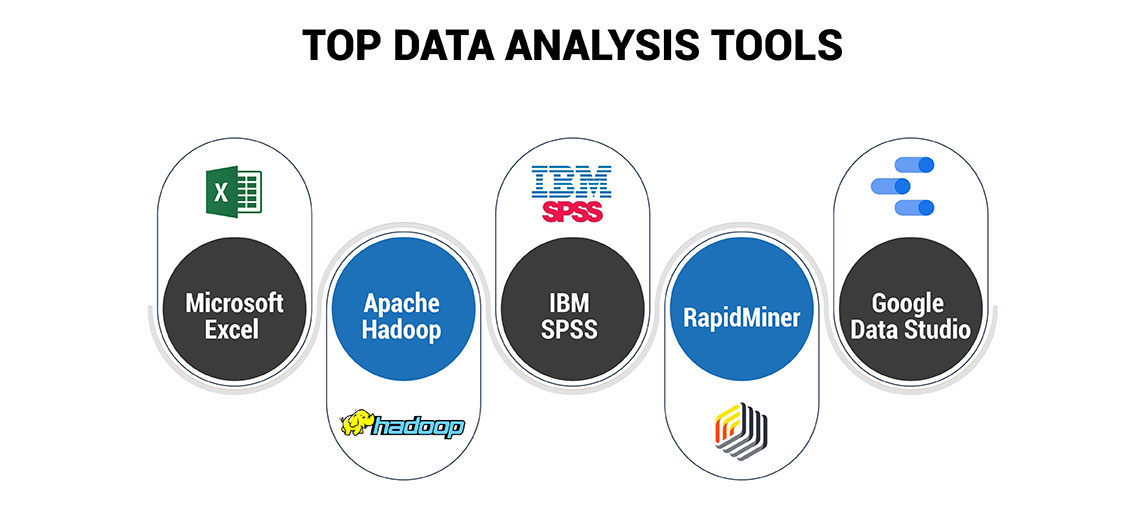Leverage Predictive Analytics for Future-Ready Choices
Leverage Predictive Analytics for Future-Ready Choices
Blog Article
Boost Efficiency and Earnings With Data Analytics
In today's data-driven landscape, companies are progressively acknowledging the pivotal role of information analytics in improving operational effectiveness and success. By methodically evaluating information, organizations can reveal important insights that notify critical decisions, enhance procedures, and dressmaker customer experiences.
Comprehending Data Analytics
In today's data-driven landscape, recognizing data analytics is essential for organizations intending to boost functional efficiency and drive profitability. Information analytics includes the systematic computational evaluation of data collections to discover patterns, relationships, and understandings that inform decision-making. By using various methods, such as statistical evaluation, maker knowing, and predictive modeling, companies can change raw information right into workable intelligence.
The process typically starts with data collection, where relevant information is gathered from multiple sources, including transactional data sources, customer interactions, and market patterns. This information is after that cleansed and arranged to make sure precision and uniformity. As soon as the data is prepared, logical tools and software program are used to discover and picture the details, allowing stakeholders to identify anomalies and trends.
Eventually, recognizing data analytics empowers organizations to make enlightened choices based upon empirical proof instead than intuition. It facilitates targeted strategies that can maximize source appropriation, boost client satisfaction, and enhance total efficiency. As companies progressively recognize the worth of data-driven insights, a solid grasp of information analytics ends up being an essential expertise for leaders and teams alike, positioning them for continual success in a competitive environment.

Secret Benefits for Businesses
Services that take advantage of information analytics can open a wide variety of advantages that substantially enhance their operations and success. One of the main advantages is improved decision-making. Information analytics supplies workable insights obtained from real-time data, enabling businesses to make educated selections that align with market needs and customer choices.

Furthermore, information analytics cultivates enhanced client experiences. By comprehending client actions and choices, organizations can customize their offerings, bring about increased fulfillment and commitment. This individualized strategy frequently results in higher conversion prices and repeat business.
Moreover, data analytics allows organizations to recognize arising possibilities and trends. By staying ahead of the contour, companies can capitalize on brand-new markets and developments prior to their rivals.
Carrying Out Data-Driven Methods
Successful implementation of data-driven techniques requires a thorough understanding of both offered information and organizational objectives sources. Organizations should first specify their goals clearly, making certain positioning between information efforts and tactical purposes. This clearness allows teams to concentrate on relevant metrics and understandings that drive decision-making.
Following, companies need to examine their existing information infrastructure. This includes evaluating data quality, access, and integration capabilities. Top quality information is important for exact evaluation, as poor data can lead to misguided approaches and squandered sources. Organizations has to establish procedures for data collection, cleansing, and monitoring to maintain data honesty.
In addition, cultivating a data-driven culture is important. Workers at all levels should be encouraged to utilize information in their everyday procedures. web link Educating workshops and programs can enhance data proficiency, encouraging personnel to make enlightened choices based on analytical understandings.
Devices and Technologies Review
A robust collection of devices and modern technologies is important for organizations aiming to harness the full possibility of data analytics. These devices help visite site with the collection, handling, and visualization of information, enabling companies to derive workable insights.
At the fundamental degree, information administration platforms such as SQL data sources and NoSQL systems give efficient information storage and access capacities. For information handling and analysis, programming languages like Python and R, along with frameworks such as Apache Flicker, enable intricate computations and artificial intelligence applications.
Visualization devices, consisting of Tableau and Power BI, transform raw data into user-friendly visual formats, making insights available to stakeholders in any way degrees. Additionally, cloud-based platforms like Google Cloud and AWS supply scalable storage and handling remedies, fitting the expanding volumes of data companies encounter.
For advanced analytics, anticipating modeling and AI-driven services are progressively embraced, enabling business to anticipate patterns and enhance decision-making procedures. Incorporating these tools right into existing operations is extremely important; organizations that successfully leverage this modern technology can dramatically improve functional performance and drive profitability. Therefore, buying the right devices and innovations is a tactical necessary for any type of data-driven company.
Case Studies of Success
Leveraging data analytics has led various companies to achieve exceptional enhancements in effectiveness and earnings. One remarkable instance is a big retail chain that implemented anticipating analytics to enhance inventory administration. By evaluating historical sales data and client fads, the business decreased excess inventory by 30%, causing significant price savings and boosted capital.
Another instance can be located in the production market, where a leading automobile maker made use of information analytics to enhance its production procedures. By monitoring machine efficiency in real-time, the company determined ineffectiveness and traffic jams, causing a 20% increase in general equipment performance (OEE) This not just increased production rates yet likewise minimized downtime and upkeep costs.

These case research studies highlight just how data analytics can drive critical decision-making, enhance processes, and inevitably improve both efficiency and profitability throughout numerous fields.
Final Thought
In final thought, the assimilation of data analytics right into organization operations offers significant chances for improving performance and productivity. By systematically examining information, companies can determine ineffectiveness, optimize customer experiences, and make informed choices.
In today's data-driven landscape, recognizing information analytics is important for companies aiming to boost operational performance and drive profitability. Information analytics entails the organized computational evaluation of data collections to uncover patterns, correlations, and insights that notify decision-making. Data analytics offers workable insights obtained from real-time information, permitting businesses to make educated choices that line up with market demands and consumer preferences.
Premium information is necessary for precise evaluation, as bad data can lead to misguided methods and thrown away resources. Organizations must develop processes for information collection, cleansing, and administration to keep data honesty.
Report this page